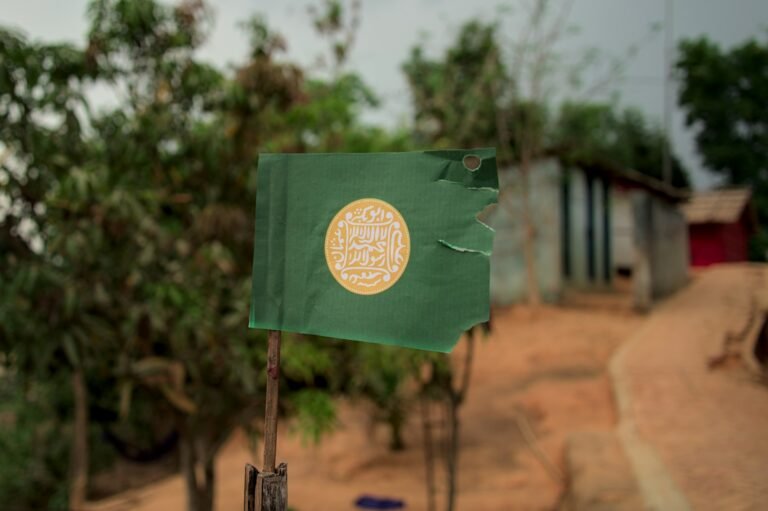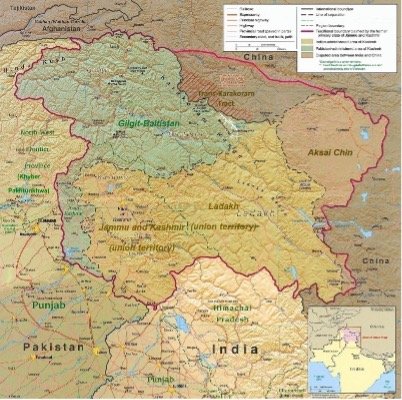Introduction
After years of being delayed, Indonesia’s Indigenous Rights Bill (RUU Masyarakat Adat) is likely to progress toward enactment. The bill, which was first drafted for submission to the country’s House of Representatives in 2010, has been included in the list of top-priority bills for 2025 (Prolegnas). Minister of Human Rights Natalius Pigai, in a May 2025 meeting with the Civil Coalition to Monitor the Indigenous Peoples Bill, affirmed the Ministry’s support for the bill and expressed his confidence that the bill will be ratified this year. The bill, if it becomes law, will give legal protection to customary or traditional lands (wilayah adat) and the right of Indigenous Peoples to reside there. It will also guarantee their right to manage natural resources according to their customs, preserve their spiritual beliefs and rituals, enjoy a healthy living environment, and receive compensation should the national government (with the Indigenous communities’ approval) take over management of the communities’ natural resources if they are deemed to be of importance to Indonesian society as a whole.
The threat facing Indonesia’s Indigenous Peoples
The bill’s progress comes at an increasingly troubled time for Indonesia’s Indigenous Peoples. Land which had long belonged to them continues to be lost, as corporations expand their operations in the country. In 2024, the Indigenous Peoples’ Alliance of Nusantara (Aliansi Masyarakat Adat Nusantara or AMAN) noted that Indigenous Peoples in Indonesia were involved in 687 land-related conflicts across the 10-year presidency of Joko Widodo (2014-2024). In the process, Indigenous Peoples lost 11 million hectares (27 million acres) of land, at least 925 people were criminally charged, and 60 faced violence from the country’s security forces. Yet, despite the Indigenous Peoples’ longstanding struggles, the Indigenous Rights Bill’s progress has been slow. The bill was first proposed by AMAN in its 2003 Congress, then submitted to the House of Representatives in 2010, but since then has not made significant progress in the legislative chamber.
In a country of some 285 million, including 50-70 million indigenous peoples, which prides itself on its cultural and ethnic diversity (its national motto, Bhinneka Tunggal Ika, means “Unity in Diversity”), the loss of Indigenous land is a threat on multiple fronts. It not only endangers the homes and livelihoods of Indigenous communities, but also threatens their ability to continue preserving their cultures and traditions, which often are tied to the land they live on. Mining activities on Gebe Island in eastern Indonesia, for example, have impacted community life, polluting sago which locals rely on for food and features in their marriage rituals (a man’s proposal must be accompanied with baskets of sago flour). Protecting Indigenous Peoples and their way of life is essential not just for them, but also to preserve Indonesia’s own identity and reputation as a country which cherishes the diversity of its people.
Indonesia’s obligations to Indigenous Peoples under international law
Indonesia voted for the United Nations Declaration on the Rights of Indigenous Peoples (UNDRIP), which was adopted by the UN General Assembly as Resolution 61/295 in 2007. The declaration affirms the right of Indigenous Peoples to enjoy “all human rights and fundamental freedoms” under the UN Charter, the Universal Declaration of Human Rights, and international human rights law. Indigenous Peoples, according to the declaration, are also entitled to self-determination and freedom in pursuing “economic, social and cultural development.” They also have the right to autonomy or self-government in their local and internal affairs, maintain their institutions, practice their customs and traditions, conserve and protect the environment and their lands, and not be forcibly removed from their lands, assimilated, or have their culture destroyed. Any relocation must be done with the approval of the Indigenous communities involved following “just and fair compensation” and with an option to return if possible. The declaration also affirms that Indigenous Peoples are guaranteed their rights under international and domestic labor law, and that they are to be involved in making decisions over matters affecting their rights.
It must be noted that, being a General Assembly resolution, the UNDRIP is not legally binding, even if Indonesia’s vote signifies its approval of the declaration’s content. To find a stronger footing for Indonesia’s obligations towards Indigenous Peoples, one must turn to legally binding instruments. Indonesia is not party to the 1989 Indigenous and Tribal Peoples Convention (ILO C169), a convention of the International Labour Organization. ILO C169 itself has been ratified by only 23 countries. Concerns over the exact definition of “indigenous peoples” (African states have argued that all African peoples should be considered “indigenous,” for example) and the potential threat to the “territorial integrity and political unity” of states have been cited as reasons for the poor ratification rate, particularly among Asian and African countries.
However, Indonesia is party to the International Covenant on Economic, Social and Cultural Right (ICESCR), having acceded to the convention in 2006. Article 1 of the ICESCR guarantees the right of self-determination for all peoples (including the right to freely pursue economic, social, and cultural development), as well as their right to “freely dispose of their natural wealth and resources.” No people shall have their own means of subsistence taken away from them. Article 11 enshrines the right of everyone to an adequate standard of living, “including adequate food, clothing and housing,” and their right to be free from hunger. Article 12 protects the right to the “highest attainable standard of physical and mental health.” Article 15 guarantees the right of everyone “to take part in cultural life,” and affirms that steps taken by states to fulfil this right must include “those necessary for the conservation, the development and the diffusion … of culture.” State adherence to the ICESCR is monitored by the UN Committee on Economic, Social and Cultural Rights (CESCR). State parties to the ICESCR, including Indonesia, are required to submit reports to the Committee on measures they have undertaken to conform to the ICESCR.
As Indonesia is not party to ILO C169, and the UNDRIP is legally non-binding, the ICESCR currently seems to be the legal instrument best suited to protecting the rights of Indonesia’s Indigenous Peoples. However, Indonesia still has a long way to go towards fulfilling the rights enumerated in the ICESCR in dealing with its Indigenous Peoples. On the island of Borneo (Kalimantan), for example, some 2.5 million people have been removed from their native lands since the 1970s. Much of the land previously held and used by Indigenous Peoples, including traditional forests, is now utilized by palm oil companies as plantations, cutting off indigenous peoples from their ancestral lands and traditions. Indonesian law does order companies intending to establish oil palm plantations to consult local communities in the process of gaining permits from the government, but this process has not always been followed. A 2019 report by Human Rights Watch, focusing in particular on the operations of PT Ledo Lestari in West Kalimantan and PT Sari Aditya Loka 1 in Jambi (on the island of Sumatra), found that their activities have negatively affected the Ibans of Borneo and the Orang Rimbas of Sumatra, respectively. They were not consulted as those companies moved in, took over their lands, and cut down their forests to make way for plantations. PT Ledo Lestari only held consultations following protests by the Ibans. Members of those Indigenous communities have been reduced to homelessness, living in tents and begging along the highway.
This is a violation of multiple provisions of the ICESCR. By being evicted from their lands and denied the right of being consulted, these Indigenous Peoples were denied the ability of self-determination under Article 1. Separated from their lands and now forced into homelessness and begging, they cannot be said to enjoy an adequate standard of living under Article 11 or the best possible standard of physical and mental health under Article 12. The loss of their traditional lands and forests also impeded their ability “to take part in cultural life” under Article 15; Iban women, for example, now found it difficult to practice their traditional weaving skills, which they put to use in making products such as baskets. The plight of the Ibans and Orang Rimbas is, unfortunately, just two of many examples of the fragility of Indigenous rights in Indonesia. This situation demonstrates why, now more than ever, the Indigenous Rights Bill is necessary to protect these communities from further encroachment into their lands and interference with their culture and way of life.
Conclusion
With the rights, cultures, and livelihoods of Indonesia’s Indigenous Peoples increasingly at risk, the passage of the Indigenous Rights Bill will go a long way towards in protecting them, by giving Indigenous Peoples the legal protection that they need to preserve their way of life. Furthermore, even if the bill does not immediately solve all the problems faced by Indigenous Peoples, its passage will also demonstrate the Indonesian government’s commitment to aid Indigenous Peoples. If the contents of the bill are actually implemented, it will also bring Indonesia more in line with its obligations to Indigenous Peoples under international law, as encapsulated in the ICESCR, as well as its commitment to Indigenous rights under the UNDRIP. Doing so will strengthen Indonesia’s international reputation as a protector of the rights of its Indigenous Peoples, and add credence to its national motto: “Unity in Diversity.”
Author
Muhammad Farrel Abhyoso is a 2025 LL.M. (Master of Laws) graduate of Cornell Law School, focusing on international law. Previously he received his Bachelor of Laws degree from the Faculty of Law, University of Indonesia, in 2023, specializing in public international law.





